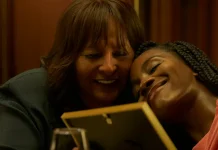 *Much like the past, racial injustice has stood out as one of the most important issues facing people today.
*Much like the past, racial injustice has stood out as one of the most important issues facing people today.
Evidence of such exists in the deaths of unarmed black people at the hands of police officers and the failure to indict anyone responsible for numerous tragedies, including the deaths of Eric Garner, Tamir Rice and Sandra Bland. With this, the question becomes: Is there a way to change the current racial injustice happening around the country?
While some point to policy made by lawmakers, Color of Change executive director Rashad Robinson points out that policy alone won’t do the trick in creating real change
“This is why we can’t concentrate on policy alone,” Robinson told HuffPost Live‘s Caroline Modarressy-Tehrani on Monday (Jan. 4). “The policies in our country are not applied fairly. So what I’m saying is policies alone do not change the underlying conditions if we don’t change the power structure.”
So what would be an effective way to get real results?
According to Robinson, the answer lies in systemic change.
“Our movement and our work has to be not just about a list of policy perspectives, but about changing the underlying power that ensures how policies are enforced, how policies are implemented, how policies are carried out,” he said.
In addition to Robinson, the Nation Institute’s Mychal Denzel Smith participated in the discussion as he cited the broken legal system among things in need of a change. In Smith’s eyes, the state of the legal system has been the catalyst for anger and ultimately action among people of color.
“I think that in a weird, twisted way, it’s the anger that gives people hope,” he stated. “It’s the fact that people are so angry that they are willing to take to the streets, put their lives on the line and face down the rubber bullets and the tear gas and the militarized police forces to stand up for their rights. That’s what turns into hope.”
Agreeing with Smith, Robinson touted grassroots movements such as Black Lives Matter as being the main vehicle for change moving forward. Despite this, he voiced caution when it comes to putting trust in politicians to lead the effort for change without pressure from the people they’re supposed to represent.
“I don’t think that people of color… can put their trust in any political candidate. We have to put our trust in movements. We have to build the type of powerful movements that force candidates to follow us,” Robinson voiced.
For Smith, Black Lives Matter has made a noticeable difference, with Hillary Clinton changing her views on issues of race over the years. From her support for her then-president Bill Clinton’s 1994 crime law to her current views on mass incarceration, Hillary Clinton is a high-profile example of the movement’s impact.
“The sort of politician that Hillary is, she responds to what the rhetoric of the moment is,” Smith said. “And I think that this proves the power of the movement to sort of force the conversation and force someone like Hillary Clinton [to change her stance on the issue].”
Click here for the HuffPost Live’s entire discussion on race for the new year. To see the news outlet’s interview with Robinson and Smith, check out the video below:
We Publish News 24/7. Don’t Miss A Story. Click HERE to SUBSCRIBE to Our Newsletter Now!





